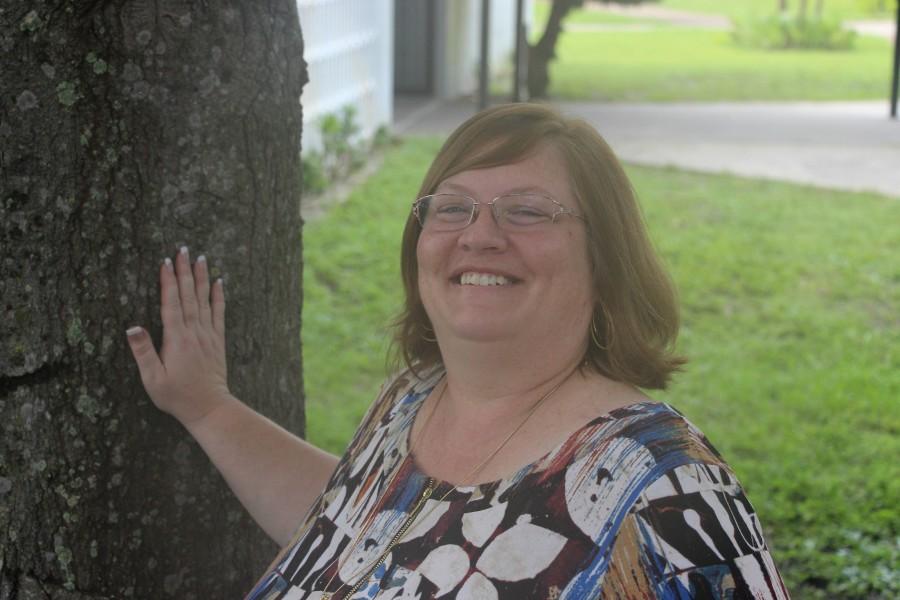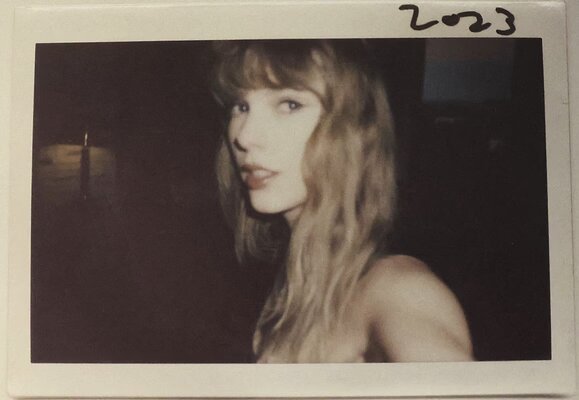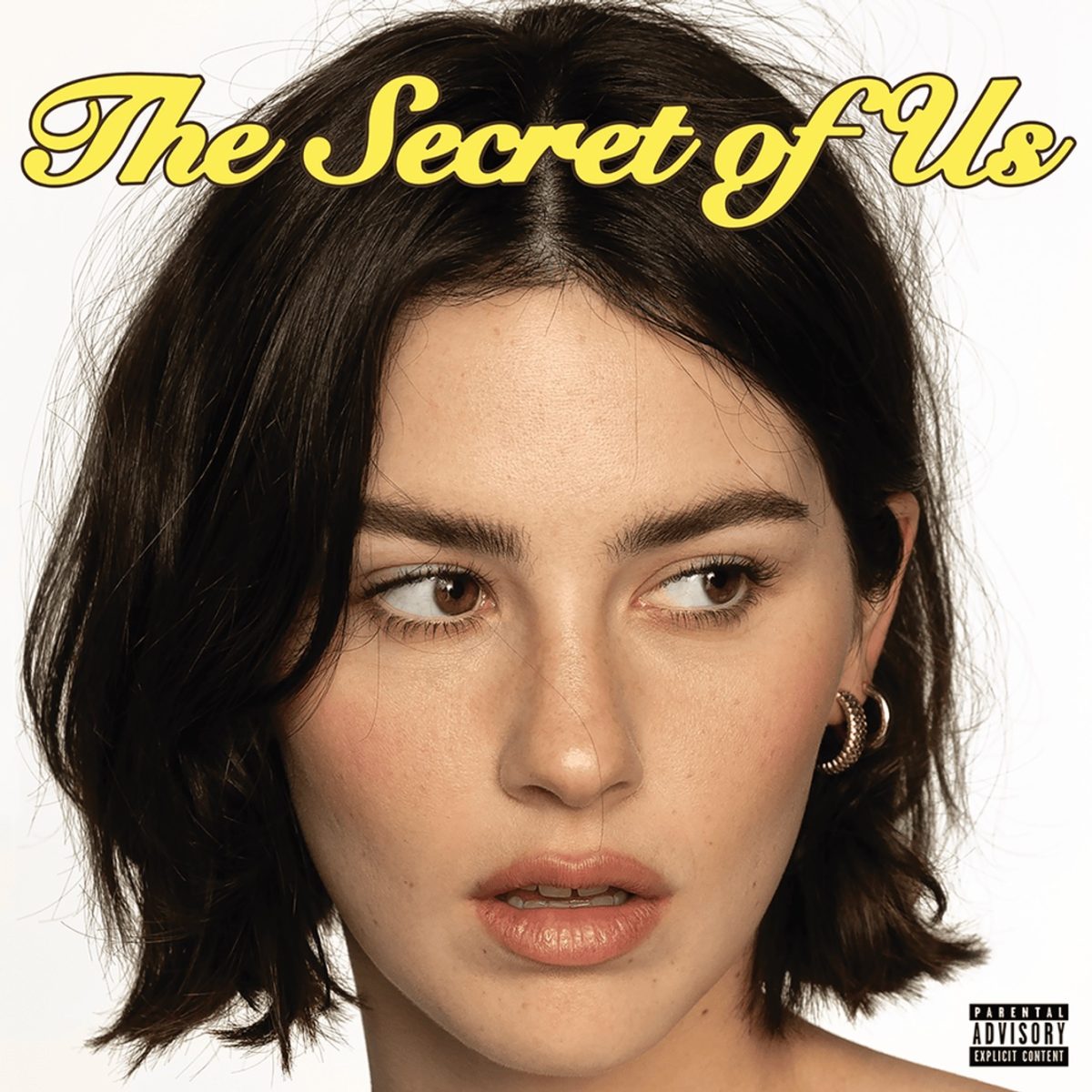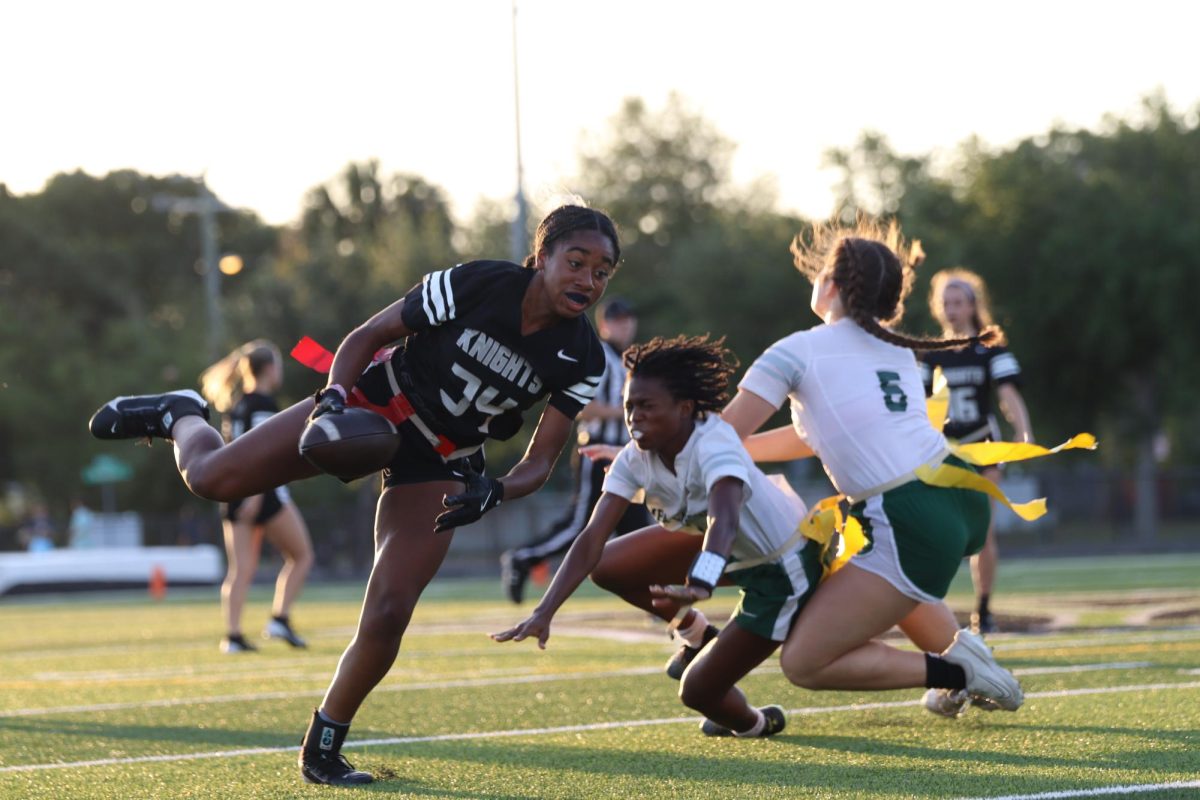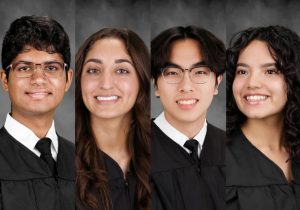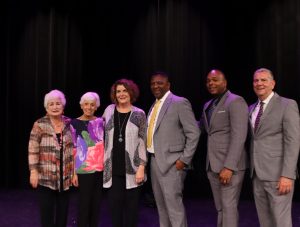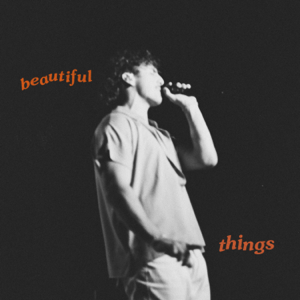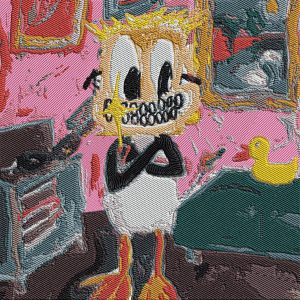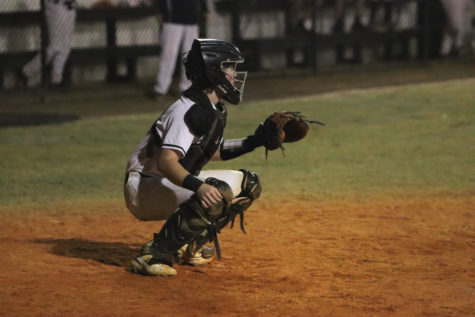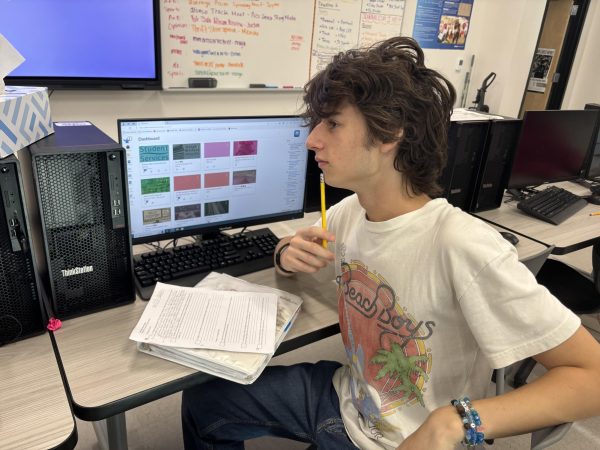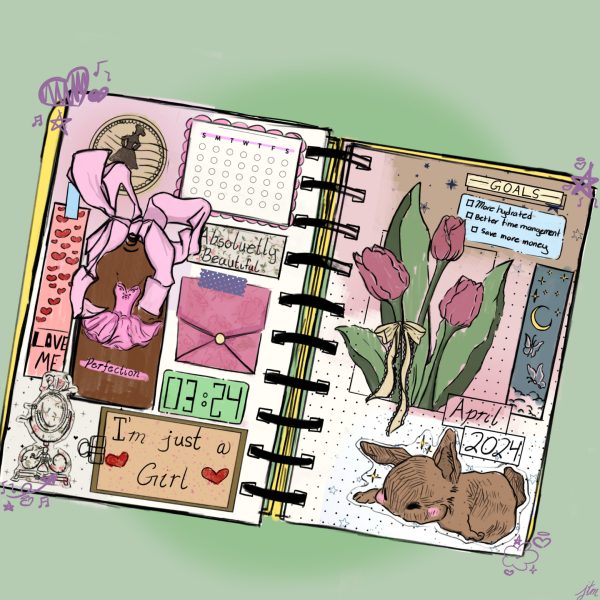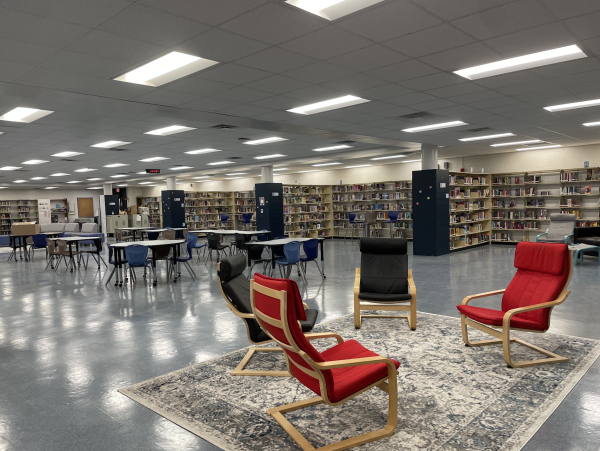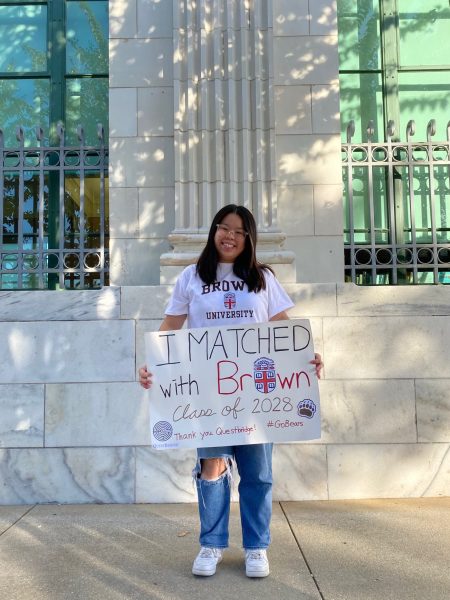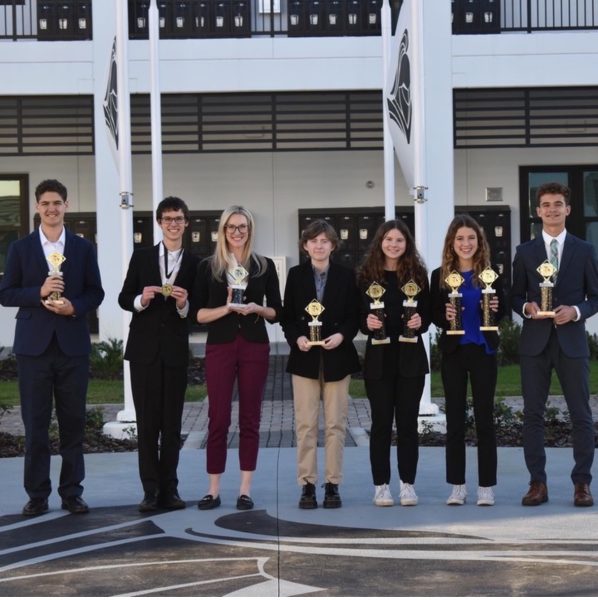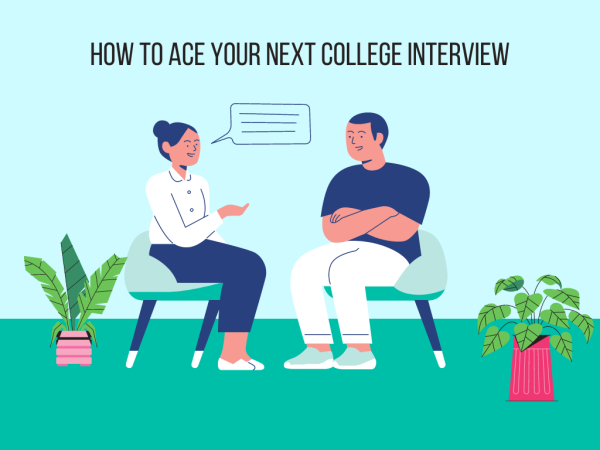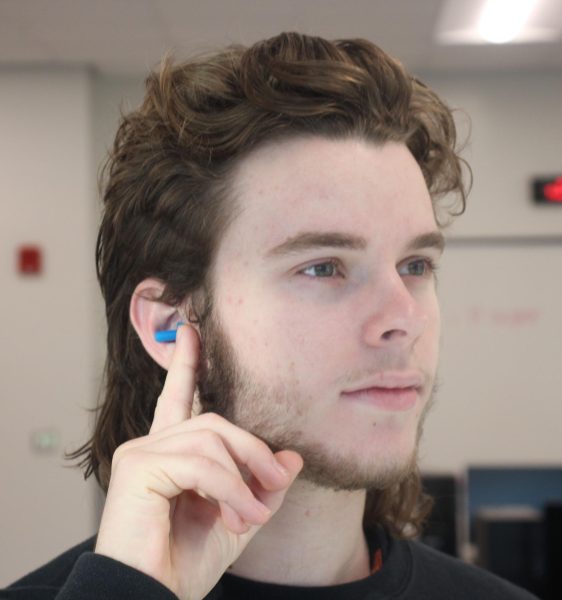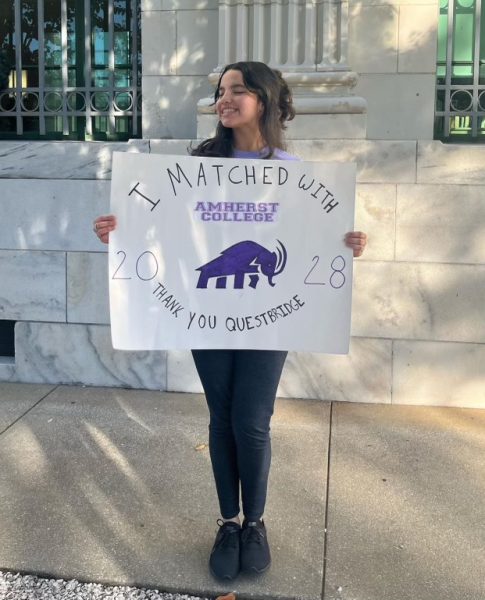Q & A: Ten Minutes with Jennifer Rossage
Photo K. Corwin
As a former biology teacher, Rossage is a big fan of trees.
September 10, 2015
Principals are often seen as the boss of the school grounds. Something like a Caped Crusader, making sure things around the school run smoothly and efficiently. If that’s the case, as the assistant principal for curriculum, Robinson newbie Jennifer Rossage would be the Robin to Johnny Bush’s Batman. Aside from her usual AP duties, Rossage also takes care of lunch duty for B and C lunches. This is where I caught up with her and learned that in the past, she has encountered some unexpected events. Dun dun dun…
Q: What exactly does the job of “Assistant Principal for Curriculum” entail?
A: You name it, we do it. It means being principal when [Bush] isn’t here, making sure that all of the teachers get the appropriate FTE [wages], making sure that everything they teach they’re certified to teach. I also supervise guidance [with] all of those “schedule changes” everybody wants that they really shouldn’t have, but we try to make as many happen as we can. Also, making the middle schoolers come through and knowing what high school is like, that articulation piece. Obviously, cafeteria duty is part of it.
Q: Is cafeteria duty a big part of your everyday tasks as an AP?
A: Well, student safety is a huge piece of what every AP does, principal on down. That’s always number one even when you talk to the superintendent or anyone. So you always do that; there’s no such thing as no duty as you move up the chain. I love that because Mr. Bush just does his part. He’s in the cafeteria and gets excited about that and it’s nice to see a leader who digs in.
Q: That’s true. Why did you decide to go into teaching or education?
A: When I was really little, I loved to play library and media specialist with my sisters. We bought a house that had all of the World Book encyclopedias and the previous owners loved to read, so they bought all the condensed versions of hardback books and had a huge library. So that was my rec room when I was a kid because I loved to read. Then I got into the sciences and I was a Junior Naturalist and I loved the frogs and the turtles. [That’s when] I said, “I’m going to be a teacher.” So I became a biology teacher from that.
Q: What’s something interesting that students would be surprised to learn about you?
A: Oh jeez… there’s probably a million things but I don’t know if I’d want them in print. (Rossage decides that she does, in fact, want them in print) [When I was a teenager,] I lived through a huge flood in Johnstown, PA, it’s the flood capital of the world. I helped evacuate people and feed people that were stuck in the city. My dad actually drove tractors to clean the mud out of the city; the mud was, depending on where you were, between 14 and 18 feet. My dad was always volunteering and my mother was a nurse, so I got sucked right into all of that. [During the flood,] I didn’t save anyone but I fed a lot of people. I peeled a lot of potatoes and made a lot of cheese sandwiches.
Houses were literally pulled off their foundations, so they floated away. Anybody who knows anything about Pennsylvania or flooding knows there’s a museum up there [in Johnstown]. My great grandmother actually had a quilt in the museum because [in] a flood that had happened years before, it had saved people while floating. But unfortunately, in the flood that I was a part of the whole museum go destroyed.
Q: So the flood museum got washed away… by a flood?
A: The first one, yes.
And when I was in college, I actually brought a student back to life. [She was] clinically dead and we brought her back to life. [After] saving that girl’s life, [I got] a card from her mother talking about her therapy and learning to speak again. She didn’t have a lot of the same skills she had before her situation. She was on the phone with one of the girls at the end of the hall and she literally just stopped talking. She had a hole in her heart and she went out. I was the resident assistant on the hall and I had some nursing students on the hall and they were doing CPR. They [ended up] calling fire rescue to get her out there. When the officers initially came, she was dead, but then we brought her back. Mom got her little girl back and the little girl got to live. It’s nice to have that memory… that you’ve saved somebody.
Q: Do you have any advice for students in planning for their futures?
A: The one thing I always tell kids is work your hardest now, because why do it again? Why regret? If you’re a freshman and you’re not doing well in a class, don’t quit. Keep working hard because you don’t want to take it again; you don’t want to take it on credit recovery. You never want to sit back and go, “You know, I wish I’d have worked harder,” because you can’t take it back. [High school] determines the rest of your life and the doors that open for you. You might as well open as many doors as possible.

